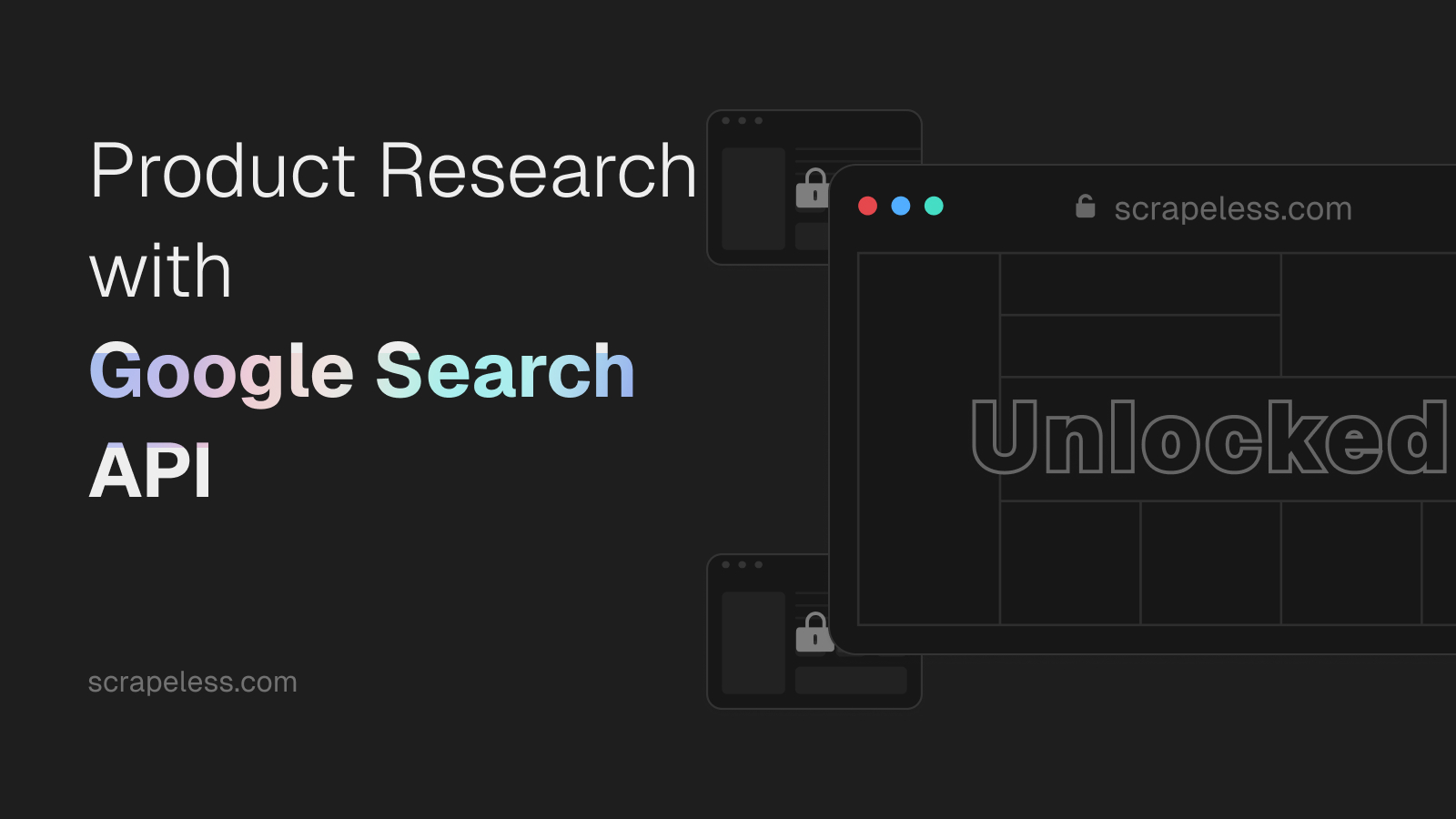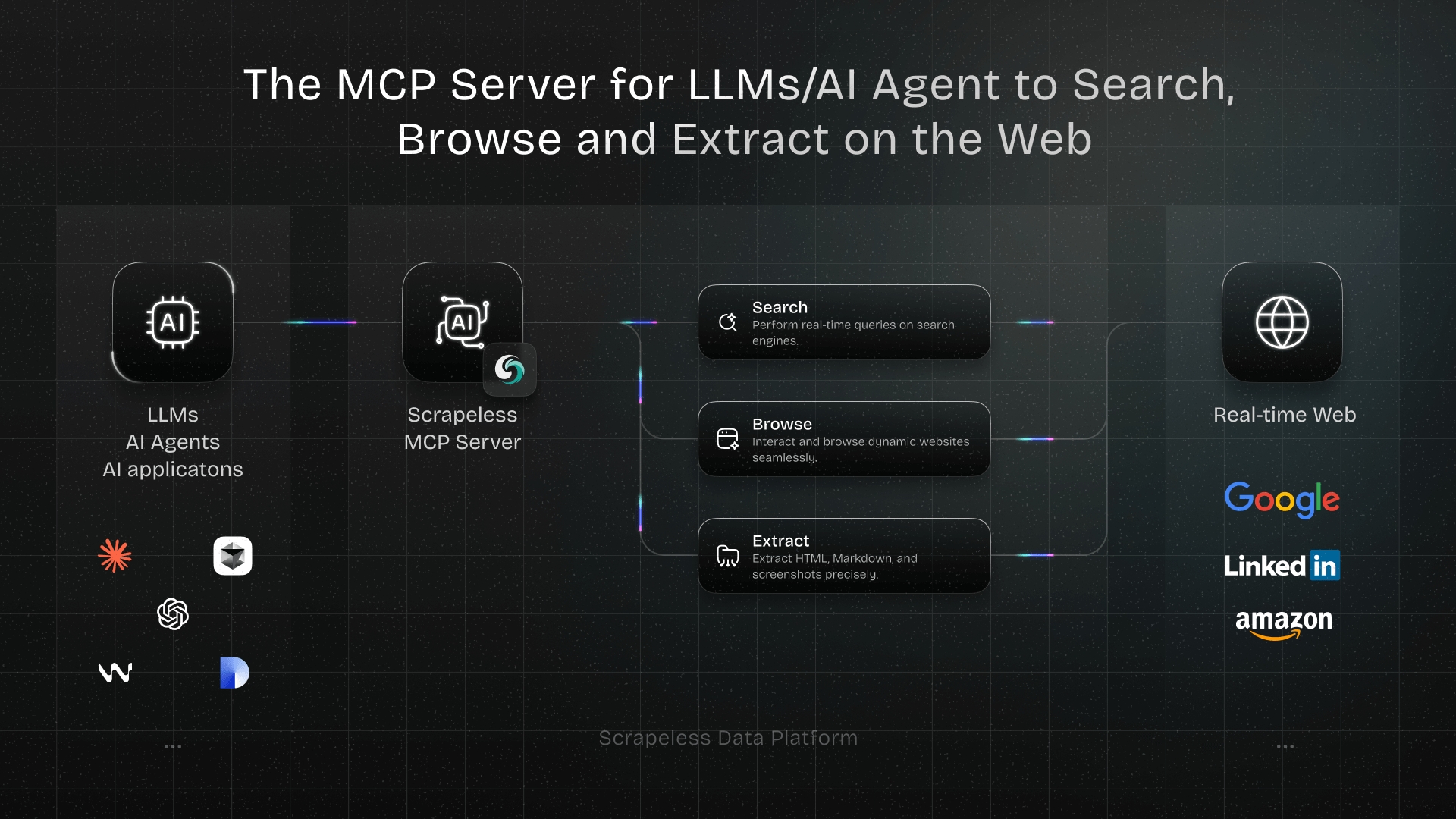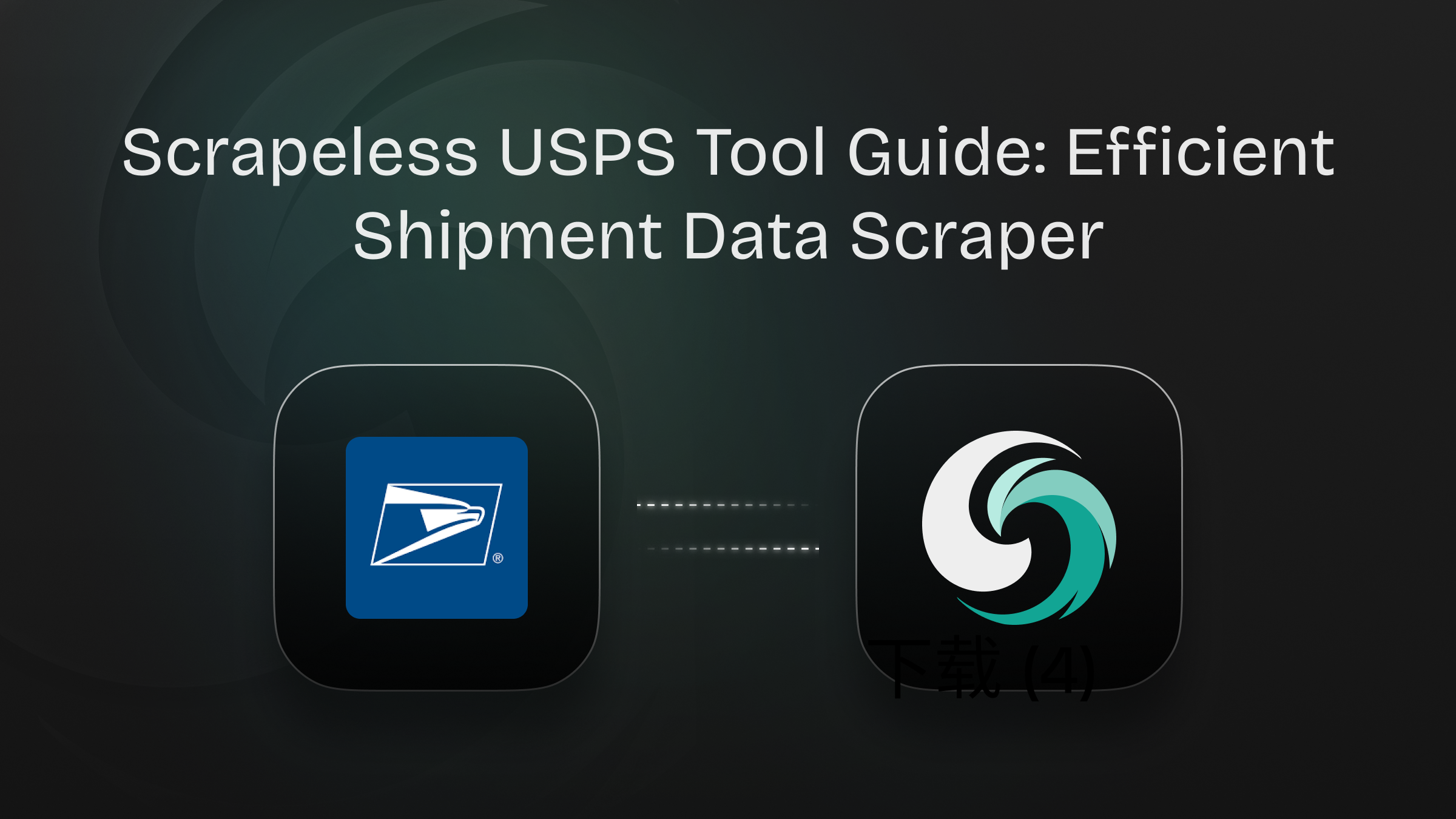Google検索APIを使った製品リサーチ:Scrapelessを使ったLabubuの深掘り
Advanced Data Extraction Specialist
紹介
Labubuのような新製品の評価は、単にいくつかのウェブページを閲覧するだけではありません。意味のある調査を行い、特にデータ駆動の意思決定においては、情報の深さ、規模、構造化処理能力が求められます。ここで活躍するのが、Scrapelessの高度なGoogle検索APIです。
本ガイドでは、Scrapelessの機能を活用して包括的な製品調査を行い、ユーザーの感情、技術仕様、価格などに関する洞察を得る方法を紹介します。
なぜScrapelessで製品調査を行うのか?
ScrapelessのGoogle検索APIは、プログラムでGoogle検索を実行し、構造化された操作可能な結果を返します。何十ものタブを手動で開く必要はなく、Scrapelessがすべての内容を整理されたJSON形式で提供し、検索条件に完全に一致します。
これは製品調査に特に役立ち、通常は以下が必要です:
- 競合製品の機能比較
- 実際のユーザー体験の理解
- コメントやフォーラムでの感情の追跡
- 市場における製品のポジショニング分析
開始前の準備
使用を開始する前に、以下を準備してください:
- 有効なScrapeless APIトークン(ダッシュボードから取得可能)
- Python 3.x(または他のスクリプト環境)のインストール
- Labubuに関する明確な検索クエリリスト
以下は製品に関連する検索例です:
「Labubu の価格モデル」「Labubu の機能一覧」「Labubu のパフォーマンステスト」「Labubu のAPI安定性」「Labubu の統合経験」「Labubu と代替製品の比較」
これらのクエリは、価格、技術力、競争環境など、調査の重要な側面に対応しています。
検索結果を洞察に変える
Scrapelessから検索結果を受け取ったら、以下が可能です:
- 内容の解析で製品詳細を抽出
- パターンの統合で複数チャネルの共通情報を識別
- 感情評価でユーザーフィードバックを基にスコアを算出
- 変化の追跡で時間経過による製品の話題動向を監視
Scrapelessは自動化かつ再利用可能なプロセスを提供し、調査負担を軽減しつつ、調査の深さと精度を高めます。
製品機能と技術仕様の理解
Scrapeless Google検索APIを使って、以下の検索を実行できます:
「Labubu の価格モデル」「Labubu の機能一覧」「Labubu のパフォーマンステスト」「Labubu のAPI安定性」「Labubu の統合経験」「Labubu と代替製品の比較」
これらは以下の評価に役立ちます
- 製品の能力
- 技術の安定性
- チームの統合難易度
さらに自動比較ロジックを追加可能です:
「Labubu vs \[競合製品名]」
これにより、Labubuのエコシステム内での立ち位置を把握できます。
ユーザー満足度と感情トレンドの測定
仕様は重要ですが、ユーザーフィードバックも同様に重要です。
Scrapelessは感情検索の自動化を簡単にします:
「Labubu は購入に値する」「Labubu 強くおすすめ」「Labubu ユーザー体験」
これらの検索は以下から情報を抽出可能です:
- ブログ
- フォーラム
- レビューサイト
肯定的・否定的なキーワード出現数を集計し、基礎的な感情スコアモデルを構築できます。
専門家の意見と深い分析の取得
より専門的な視点が欲しい場合は、構造化クエリを試してみてください:
「Labubu の専門家レビュー」「Labubu のケーススタディ」
これらにより以下がわかります:
- アナリストからのフィードバック
- 企業の実際の利用状況
- 製品品質の長期的評価
これは顧客レビューよりも戦略的な分析視点を提供します。
おまけ:Labubuを評価するPythonスクリプト
調査プロセスをさらに強化するため、以下の基本Pythonスクリプトを用意しました。これにより:
- Scrapeless APIへクエリを送信
- ポジティブ・ネガティブ感情キーワードのマッチ数を集計
- 公共認識を反映した基礎的な感情スコアを返す
準備するもの:
- Python 3.xのインストール – こちらからダウンロード
- 有効なScrapeless APIトークン – コード内の
SCRAPELESS_API_TOKENを置き換え requestsライブラリのインストール – ターミナルで:pip install requests
スクリプトを実行すると、コンソールに結果を出力し、結果ファイルを生成します。
Python Script ( labubu_research_script.py )
language
import json
import requests
SCRAPELESS_API_TOKEN = "SCRAPELESS_API_TOKEN"
def search_google_with_scrapeless(query, gl="us", hl="en", google_domain="google.com", num="10"):
"""Performs a Google search using the Scrapeless API and returns the JSON response."""
host = "api.scrapeless.com"
url = f"https://{host}/api/v1/scraper/request"
headers = {
"x-api-token": SCRAPELESS_API_TOKEN
}
json_payload = json.dumps({
"actor": "scraper.google.search",
"input": {
"q": query,
"gl": gl,
"hl": hl,
"google_domain": google_domain,
"start": "0",
"num": num
}
})
try:
response = requests.post(url, headers=headers, data=json_payload)
response.raise_for_status() # Raise an exception for HTTP errors
return response.json()
except requests.exceptions.RequestException as e:
print(f"Error during API request: {e}")
return None
def get_result_count(query):
search_results = search_google_with_scrapeless(query, num="1") # Only need 1 result to get total_results
if search_results and "search_information" in search_results:
# Scrapeless API might not have spelling_fix, so we rely on total_results
return int(search_results["search_information"].get("total_results", 0))
return 0
def negative_queries(product_name):
return [
f'"{product_name} broken"',
f'"{product_name} defective"',
f'"{product_name} quality issues"',
f'"{product_name} paint chipping"',
f'"{product_name} fragile"',
f'"{product_name} easily damaged"',
f'"{product_name} not as pictured"',
f'"{product_name} disappointed with"',
f'"{product_name} regret buying"',
f'"{product_name} waste of money"',
]
def positive_queries(product_name):
return [
f'"{product_name} cute"',
f'"{product_name} adorable"',
f'"{product_name} well-made"',
f'"{product_name} high quality"',
f'"{product_name} great design"',
f'"{product_name} perfect gift"',
f'"{product_name} highly collectible"',
f'"{product_name} worth the price"',
f'"{product_name} love my"',
f'"{product_name} recommended"',
]
def conduct_labubu_product_research_with_scoring():
product_name = "Labubu"
negative_markers = 0
positive_markers = 0
print(f"Searching for product: {product_name}\n")
print("Negative results found:")
negative_results_output = []
for query in negative_queries(product_name):
count = get_result_count(query)
if count > 0:
negative_markers += 1
negative_results_output.append(f'\"{query}\": {count}')
print(f'\"{query}\": {count}')
if not negative_results_output:
print("none")
print("\nPositive results found:")
positive_results_output = []
for query in positive_queries(product_name):
count = get_result_count(query)
if count > 0:
positive_markers += 1
positive_results_output.append(f'\"{query}\": {count}')
print(f'\"{query}\": {count}')
if not positive_results_output:
print("none")
score = positive_markers - negative_markers
print(f"\nNegative markers: {negative_markers}")
print(f"Positive markers: {positive_markers}")
print(f"Score: {score}")
# Save the output to a file for later inclusion in the article
with open("labubu_scoring_output.txt", "w", encoding="utf-8") as f:
f.write(f"Searching for product: {product_name}\n\n")
f.write("Negative results found:\n")
if negative_results_output:
f.write("\n".join(negative_results_output) + "\n")
else:
f.write("none\n")
f.write("\nPositive results found:\n")
if positive_results_output:
f.write("\n".join(positive_results_output) + "\n")
else:
f.write("none\n")
f.write(f"\nNegative markers: {negative_markers}\n")
f.write(f"Positive markers: {positive_markers}\n")
f.write(f"Score: {score}\n")
if __name__ == "__main__":
conduct_labubu_product_research_with_scoring()スクリプトの実行
環境を設定しAPIトークンを追加した後、ターミナルで以下を実行してください:
language
python3 labubu_research_script.pyスクリプトは以下を行います:
- 事前定義されたすべての検索語を順に実行
- Scrapeless Google検索APIに問い合わせ
- 各検索語のオーガニック検索結果数を出力
- 結果を
labubu_search_results.jsonに保存
コード構成の概要
主なモジュールは以下の通りです:
search_google_with_scrapeless():Scrapeless APIに検索リクエストを送信get_result_count():クエリにマッチする総結果数を返すpositive_queries()/negative_queries():Labubuに対する感情キーワードを定義conduct_labubu_product_research_with_scoring():メイン関数。スコアリング処理と集計レポートを実施
検索結果のスコア例
以下は玩具カテゴリ向けキーワードに対するスクリプト実行例です:
language
Searching for product: Labubu
Negative results found:
""Labubu broken"": 869
""Labubu defective"": 721
""Labubu not as pictured"": 29700000
""Labubu disappointed with"": 2
""Labubu waste of money"": 5
Positive results found:
""Labubu cute"": 473000
""Labubu adorable"": 44900
""Labubu well-made"": 5
""Labubu high quality"": 17700
""Labubu perfect gift"": 3130
""Labubu worth the price"": 2430
""Labubu love my"": 4570
""Labubu recommended"": 375
Negative markers: 5
Positive markers: 8
Score: 3このモデルでは、スコアが `0` の場合は感情が均衡しており、正の数は評価が良いことを、負の数は懸念があることを示します。
スコアリングロジックは以下でさらに改善可能です:
- キーワードの重み付け
- テキスト断片の感情分析
- クラスタリングと分類
Scrapeless を活用して自動モニタリングを実現すれば、市場フィードバックのリアルタイム追跡が可能となり、製品チームやマーケティングチームにとって非常に価値があります。
結び
製品調査に手間をかける必要はもうありません。Scrapeless があれば:
- ウェブデータの自動収集
- 知りたい情報の精密抽出
- ユーザー感情や市場動向のリアルタイム把握
🧪 あなた自身の製品調査プロセスを構築しましょう: Scrapeless Google Search API
Scrapelessでは、適用される法律、規制、およびWebサイトのプライバシーポリシーを厳密に遵守しながら、公開されているデータのみにアクセスします。 このブログのコンテンツは、デモンストレーションのみを目的としており、違法または侵害の活動は含まれません。 このブログまたはサードパーティのリンクからの情報の使用に対するすべての責任を保証せず、放棄します。 スクレイピング活動に従事する前に、法律顧問に相談し、ターゲットウェブサイトの利用規約を確認するか、必要な許可を取得してください。



